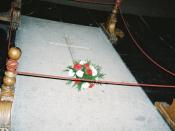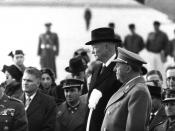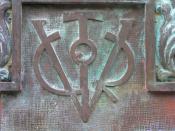In less than two decades Spain has rushed from dictatorship to democracy and from virtual world isolation to membership in the European Union. The actual transition (1973-1982) took place from the assasination of Carrero Blanco, heir to the regime, to the 1982 democratic elections (3rd after Franco's death) when the Socialists won by a wide margin. The transition may have been relatively peaceful, but was not without its formidable challenges. Spain existed under the authoritarian rule of Francisco Franco for thirty-nine years. Throughout this period the Francoist ideology was based on 'the three pillars of the regime': the Nationalist Army, the Falange (the single party government) and the Church. In addition, the mass media also played an important role in the dictatorship and the transition to democracy. The Spanish regime, under the directive of General Franco operated under a fascist doctrine, adamantly rejecting the principles of democracy. Upon Franco's death he was no longer able to protect and promote the values of national unity, anti-communism, and Catholicism.
He could no longer stand in the way of a nation ready to turn to a democratic government, society, and culture. Although Franco's death on November 20th, 1975 precipitated a nominal shift to democracy, the transition, shaped by the institutional legacy left behind by the Franco regime, actually began much earlier.
Franco was the Caudillo of Spain for nearly forty years. From the close of the Civil War in 1939 (Franco was Chief of the Government of the Spanish State since September 1936) up until his death in 1975, General Franco was the authoritarian ruler in Spain. Franco was the last of the European dictators still alive from the inter-war period. The Francoist constitution, the Leyes Fundamentales, was supposed to make possible the institutionalization of the regime and ensure its continuity...


